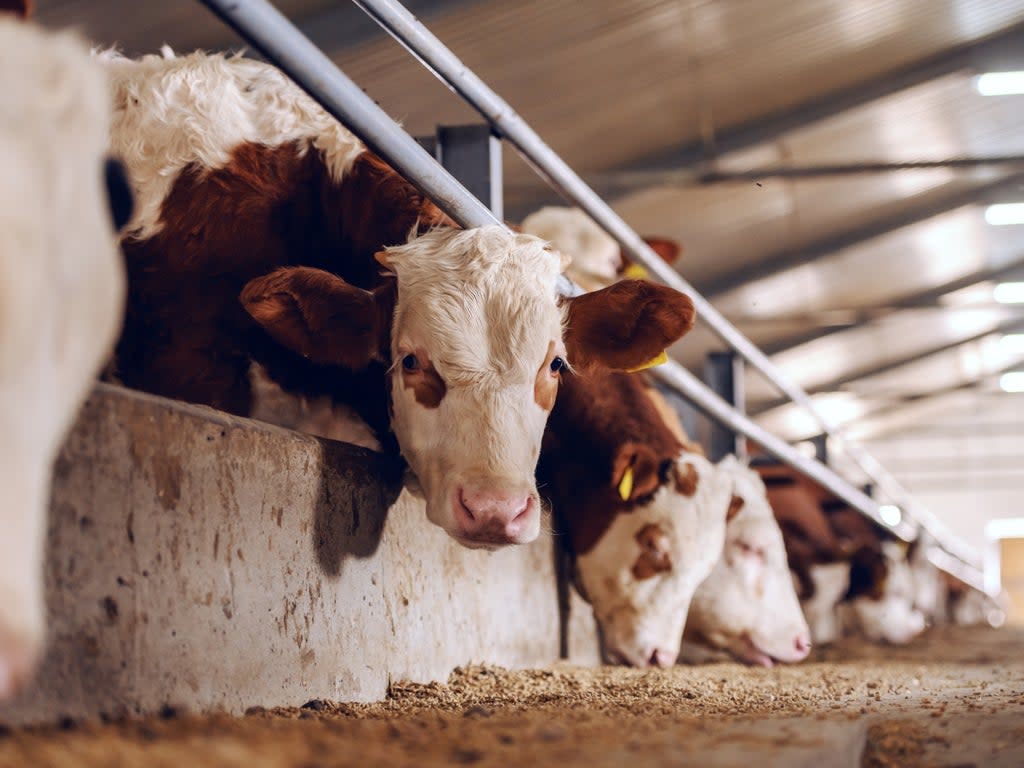Case of ‘mad cow disease’ discovered in Somerset farm

A case of BSE, commonly known as mad cow disease, has been found on a farm in Somerset.
The animal infected with bovine spongiform encephalopathy has died and has been removed from the site, the Animal and Plant Health Agency said on Friday.
It is unclear how the cow caught the disease and until an investigation has completed restrictions on livestock movements in the area around the farm have been imposed as a precaution.
The agency said there was no risk of mad cow disease entering the food supply system as a result of the incident.
The chief veterinary officer Christine Middlemiss said detecting the BSE case was proof the government’s surveillance programme for containing the disease was working.
“A single case of classicalâ¯BSE has been confirmed on a farm in Somerset. The animal died on farm and was tested as part of our TSE surveillance controls.
“Movement restrictions have been put in place on the farm. This is standard procedure until we have a clear understanding of the origin of the disease.
“We recognise this will be a traumatic time for the farmer and we are on hand to offer advice through this difficult period.
“The UK’s overall risk status for BSE remains at ‘controlled’ and there is no risk to food safety or public health.”
BSE is a degenerative brain condition in cattle which causes weight loss, unusual behaviour, paralysis and eventually death.
There was a major outbreak of the disease in the 1980s and 1990s among British cattle, which was caused by the practice of feeding meat and bone meal derived from other cows to herds.
From the mid-1990s, a small number of people began to develop variant Creutzfeldt–Jakob disease (vCJD) as a result of consuming BSE-infected beef. In total, 177 people would die during the outbreak.
Many countries around the world banned the sale of British beef as a result, with some of the embargoes lasting until as recently as 2019.
However, a Food Standards Agency spokesperson said there were rigorous systems in place to prevent BSE in cattle from entering the food chain and the new case did not put any consumers at risk.
“There are strict controls in place to protect consumers from the risk of BSE, including controls on animal feed, and removal of the parts of cattle most likely to carry BSE infectivity,” the spokesperson said.
“Consumers can be reassured that these important protection measures remain in place and that Food Standards Agency official veterinarians and meat hygiene inspectors working in all abattoirs in England will continue to ensure that the safety of consumers remains the top priority.”
There have been five confirmed cases of BSE in the UK since 2014, but all of these were in animals which were not destined to end up sold as beef for human consumption.
The Animal and Plant Health Agency has begun an investigation into the Somerset herd where the infected cow was found, the farm itself and where the disease could have come from, and World Organisation for Animal Health has also been informed.
Read More
Prince Andrew given a week to challenge high court decision in sex assault case
‘It’s bonkers’: Traders and shoppers split over plan to revive imperial measurements
Fuel hikes will force ‘heat or eat’ choice on poorest, ministers told
Vaccine passports required to enter nightclubs and large events in Wales
Cat reunited with its owners after going missing ten years ago
What is Aukus? The new defence pact between Australia, Britain and the US

